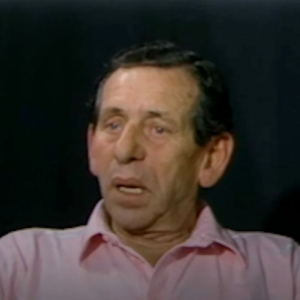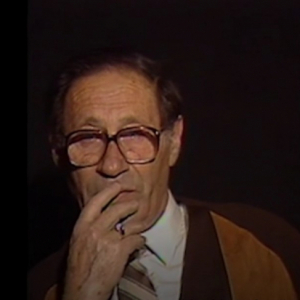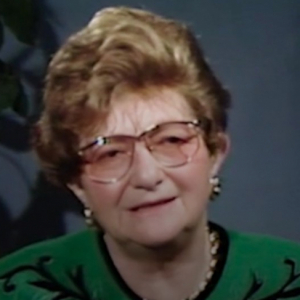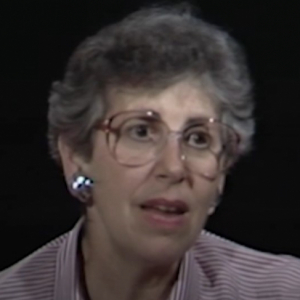Judy Weissenberg Cohen
Judy Cohen describes what it was like to arrive in Auschwitz-Birkenau and how Yom Kippur was commemorated in the womens' barracks.
Judy Cohen (née Judit Weissenberg) was born in Debrecen, Hungary, in 1928, the youngest of seven siblings to an Orthodox Jewish family.
When the Germans occupied Hungary on March 19, 1944, Judy was 15 years old. The Weissenberg family home was at the centre of the Jewish ghetto, and as conditions worsened, many Jewish families sought relief there. Judy and her siblings were forced to work at a brick factory, and during the first week of June 1944, they were deported to Auschwitz-Birkenau in packed cattle-cars. There, she and her sisters were forever separated from their mother and aunt.
At Auschwitz-Birkenau, Judy and her sisters had their hair cut off, were given rags, and were forced to sleep in overcrowded barracks. Two of her sisters were deported to the Stutthof concentration camp, where one survived and the other died. Judy was transported to Bergen-Belsen in September of 1944 and, shortly thereafter, was recruited to work for Junkers Airplane Factory. Along with 500 others, she toiled 12 hours a day to manufacturing airplane parts for Nazi Germany.
In April of 1945, the Americans leveled the factory, and Judy was forced on a death march for four weeks, which left fewer than 200 alive. Judy and the other survivors walked towards the American liberators and freed themselves. After liberation, Judy spent two years at the Bergen-Belsen Displaced Persons Camp and discovered that two of her siblings were alive. Although she survived several camps and a death march, her parents, four siblings, a sister-in-law, an infant nephew, and most of her large, extended family were murdered.
Immigrating to Canada in 1948, Judy worked in the garment industry in Montreal. There, she met and married Sidney Jessel Cohen, and they had two children together, Michelle and Jonathan. They moved to Toronto in 1961, where Judy Cohen still lives today.
Judy Cohen is a fervent activist in Holocaust education and anti-racism, and is the originator for the “We Who Survived” photo exhibition, the creator of her own scholarly-acclaimed website WomenandtheHolocaust.com and published her memoir A Cry in Unison (Azrieli Foundation, 2020). Her full testimony is part of the Canadian Collection of Holocaust survivor testimonies. It is preserved in the USC Shoah Foundation’s Visual History Archive and accessible through the Ekstein Library.
Judy Weissenberg CohenIf I can do my part so that history won’t repeat itself, I would certainly try.
Testimony to discover
-
Death March

Joseph Akerman
Joseph Akerman discusses a Death March he endured near the end of the war, as well as the overall condition of the concentration camps.
Listen -
Post-War Conditions

Sam Krongold
Sam Krongold discusses the post-war conditions in Poland that made it unsafe for him and his family to return to their home.
Listen -
Death March

Lilly Yunger
Lilly Yunger describes her experiences on a Death March and the dangers she faced.
Listen -
Hiding

Judy Schachter
Judy Schachter describes a dangerous experience while in hiding.
Listen
Educators & Students
Educational guides
Check resources